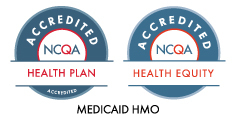 For Michelle Nepomuceno Stott, quality improvement and population health director, health equity at Central California Alliance for Health (the Alliance) is deeply personal.
For Michelle Nepomuceno Stott, quality improvement and population health director, health equity at Central California Alliance for Health (the Alliance) is deeply personal.
Several years ago, Stott’s mother received bad news at the doctor’s office.
“My mom was living with me at the time, which in the Filipino culture—and also in our own family values — was expected,” said Stott. “When she was diagnosed, the doctor came in and said to her, ‘I’m sorry to tell you this, but you have adenocarcinoma.’ When she left, my mom said, ‘I don’t understand. What did she say?’ I was the one who had to tell her, ‘Mom, you have cancer.’”

Following the diagnosis, Stott helped her mother navigate the health care system. As an immigrant whose second language was English, Stott’s mother was often dismissed or not fully listened to. At times, her doctors seemed to make assumptions based on the color of her skin and did not make an effort to effectively communicate about her care.
Stott’s mother’s experience is far from an outlier. In fact, people of color or from under resourced populations frequently encounter implicit bias and a lack of cultural humility in the medical system, causing patients to avoid seeking follow up care or worse yet, to mistrust their doctors.
Stott, who’s also a current participant in the Disparities Leadership Program through the Disparities Solutions Center, shared that the importance of health equity can be understood through the universal human desire to be known.
“We all want to be seen and heard for who we are, which is why diversity, equity and inclusion work takes commitment and a lot of discomfort,” said Stott.
Providing care that is person-centered, culturally appropriate and in service to closing gaps in health outcomes is no small task. It takes focus and collaboration. The Alliance is proud of all our staff and partners who make this work possible, including:
- Our Member Services team.
- Over 10,800 contracted providers across three counties.
- Our Quality Improvement and Population Health Department, which offers cultural and linguistic services and actionable insights regarding the needs of our members.
- Our Your Health Matters community outreach program, which offers bilingual support for members and potential members at events throughout Merced, Monterey and Santa Cruz counties.
- Our grants team, which administers the Alliance’s Medi-Cal Capacity Grant Program that funds community initiatives tackling social determinants of health.
When it comes to health care, there is no such thing as a “one size fits all” solution. Despite the isolating effects of the pandemic, the Alliance is committed to finding new ways to empathize and connect with our members.
Whether analyzing rates of child and adolescent well visits or COVID-19 vaccination rates, we look for gaps in the numbers because they’re more than numbers – they are critical stories of our neighbors and community members. To effectively pursue our mission of Healthy People, Healthy Communities, we must be in conversation with our members while noticing and addressing the problematic patterns in health care.
“Our work is never done,” Stott said, emphasizing that in serving Alliance members, we must “understand their lived experience and connect back to why we’re doing the things we’re doing.”
Looking ahead, the Alliance has established health equity as a key priority in our 2022-26 Strategic Plan. We all have a part to play in the health and wellness of our communities.
May is Asian American and Pacific Islander Heritage Month. We celebrate the tremendous contributions of Asian Americans to our nation’s past, present and future. The Alliance remains committed to serving the AAPI community through providing quality, accessible health care guided by local innovation.



